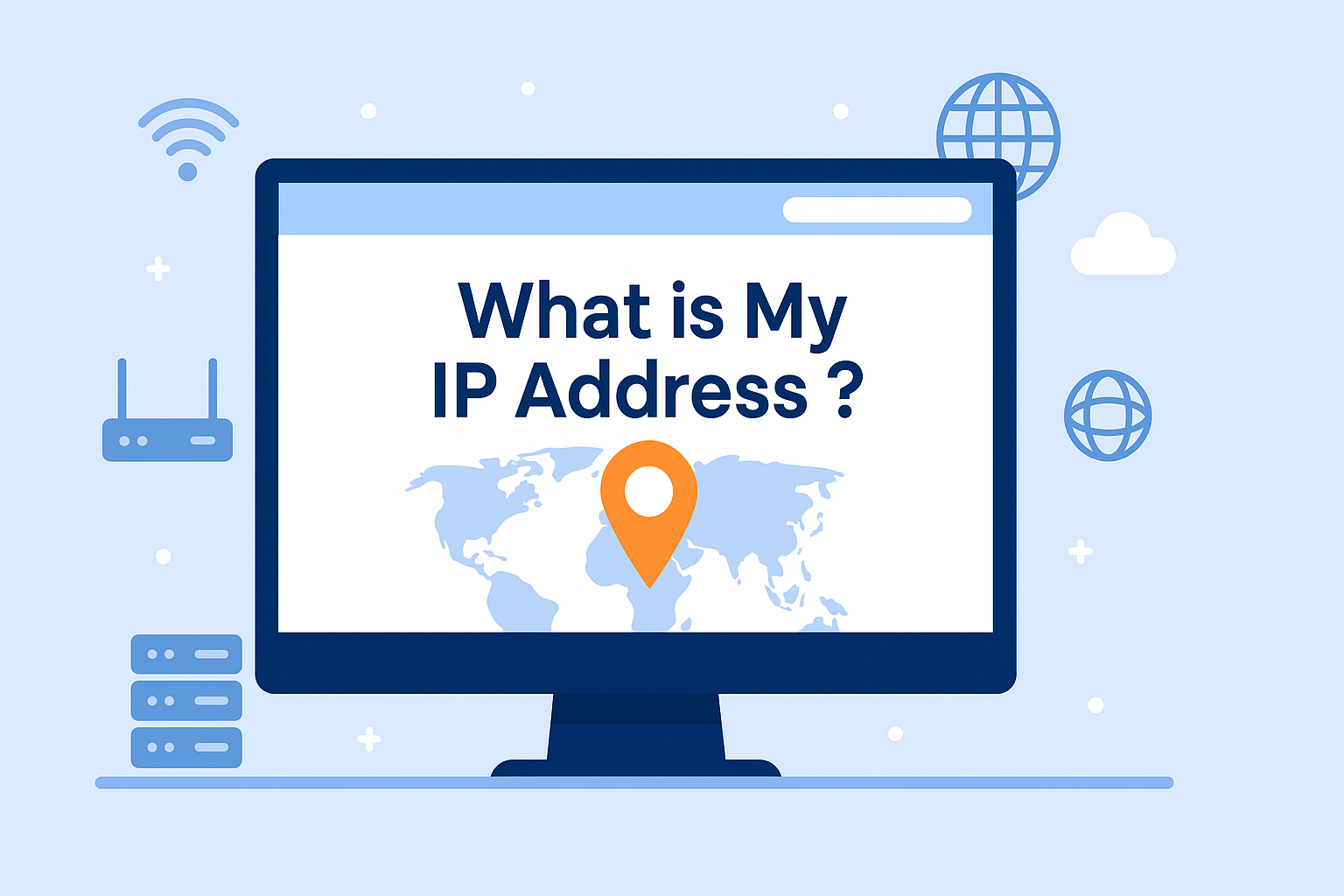
24
What Is My IP Address? Everything You Need to Know
Learn everything about IP addresses: what they are, how they work, how to find your IP, and how to protect your privacy online. Use Recipeace What’s My IP tool for instant results.
Introduction: The Digital Fingerprint of the Internet
Every time you connect to the internet, you leave behind a trace — your IP address. Short for Internet Protocol address, this unique number identifies your device, allows you to connect with websites, and makes the modern internet possible.
But your IP address is more than just a number. It can reveal your location, your internet service provider, and even be used to track your online activity. That’s why understanding your IP, how it works, and how to manage it is essential in today’s digital age.
In this guide, we’ll cover:
- What an IP address is and how it works
- The difference between IPv4 and IPv6
- Public vs private IP addresses
- Why your IP changes
- How to find your IP instantly
- Privacy risks of IP exposure
- How to protect or hide your IP
- Tools to look up IP information
Let’s dive in.
What Is an IP Address?
Think of an IP address like your digital home address. Just as mail needs a physical address to reach you, internet traffic needs an IP to find your device.
There are two main versions:
- IPv4 (Internet Protocol v4): Uses 32-bit addresses, like 192.168.1.1. Limited to about 4.3 billion unique addresses.
- IPv6 (Internet Protocol v6): Uses 128-bit addresses, like 2001:0db8:85a3::8a2e:0370:7334. Designed to replace IPv4 and provide virtually unlimited addresses.
Public vs Private IP Addresses
Not all IP addresses are created equal:
- Public IP: Assigned by your ISP (Internet Service Provider). Visible to websites, servers, and anyone you connect with online.
- Private IP: Used within your home or office network. For example, 192.168.0.1 is common for routers.
When you search “What’s my IP?” online, you’ll see your public IP.
Why Does Your IP Address Change?
Your IP isn’t always fixed. In fact, most ISPs use dynamic IP addresses.
Reasons your IP might change:
- Restarting your router
- Changing networks (home WiFi → mobile data)
- ISP refreshing its address pool
- Using a VPN or proxy service
Some businesses and individuals use static IP addresses for stability (like hosting servers).
How to Find Your IP Address
The fastest way?
Use the Recipeace What’s My IP tool
— it shows your public IP instantly.
Other ways:
- On Windows: Command Prompt → type ipconfig
- On macOS: System Preferences > Network
- On Linux: ifconfig
- On Mobile: Settings > WiFi > Network details
What Information Does an IP Reveal?
Your IP address can reveal:
- Approximate location (city/region, not exact address)
- ISP name
- Network type (mobile, broadband, corporate)
Try the Recipeace IP Information tool for a detailed breakdown.
Privacy Risks of IP Exposure
While your IP can’t usually pinpoint your house, it still poses risks:
- Tracking: Advertisers use it to serve targeted ads.
- Hacking attempts: Attackers may scan your IP for vulnerabilities.
- Geo-blocking: Streaming services use IP to restrict content by region.
- Bans/Restrictions: Websites can block IPs for policy violations.
How to Protect or Hide Your IP
If you care about privacy, consider these methods:
- VPN (Virtual Private Network): Encrypts traffic and masks your IP.
- Proxy Servers: Routes your connection through another server.
- TOR Browser: Hides your IP via multiple layers of relays.
- Mobile Data Switching: Quick way to get a new IP.
Use Cases of IP Lookup Tools
IP lookups aren’t just for curiosity. They help with:
- Troubleshooting connectivity issues
- Identifying suspicious traffic
- Checking if your IP is blacklisted
- Geo-testing websites
- Understanding visitor analytics
Recipeace Tools to Explore
- What’s My IP: Instantly view your public IP.
- IP Information: Get ISP and location details.
- DNS Lookup: Investigate domain records tied to IPs.
- SSL Checker: Verify if IP-based websites are secure.
Future of IP Addresses (IPv6 Adoption)
IPv4 exhaustion is real. IPv6 adoption is growing, offering:
- Better routing efficiency
- Stronger built-in security
- Virtually infinite unique addresses
Google reports over 40% of users now access services via IPv6 — a number that keeps rising.
Conclusion: Your IP, Your Identity Online
Your IP address is the foundation of your online presence — both a gateway and a risk.
Before you ignore it, remember:
- It identifies you online.
- It reveals your location.
- It can be hidden for privacy.
- It’s essential for connectivity.
So the next time you ask, “What’s my IP?” — know that it’s more than just numbers. It’s your digital fingerprint.
Contact
Missing something?
Feel free to request missing tools or give some feedback using our contact form.
Contact Us